Related Research Articles

Operation Torch was an Allied invasion of French North Africa during the Second World War. Torch was a compromise operation that met the British objective of securing victory in North Africa while allowing American armed forces the opportunity to begin their fight against Nazi Germany and Fascist Italy on a limited scale. It was the first mass involvement of US troops in the European–North African Theatre and saw the first big airborne assault carried out by the United States.

Free France was a political entity that claimed to be the legitimate government of France following the dissolution of the Third Republic. Led by General Charles de Gaulle, Free France was established as a government-in-exile in London in June 1940 after the Fall of France during World War II and fought the Axis as an Allied nation with its Free French Forces. Free France also supported the resistance in Nazi-occupied France, known as the French Forces of the Interior, as well as gained strategic footholds in several French colonies in Africa.

Jean Louis Xavier François Darlan was a French admiral and political figure. Born in Nérac, Darlan graduated from the École navale in 1902 and quickly advanced through the ranks following his service during World War I. He was promoted to rear admiral in 1929, vice admiral in 1932, lieutenant admiral in 1937 before finally being made admiral and Chief of the Naval Staff in 1937. In 1939, Darlan was promoted to admiral of the fleet, a rank created specifically for him.
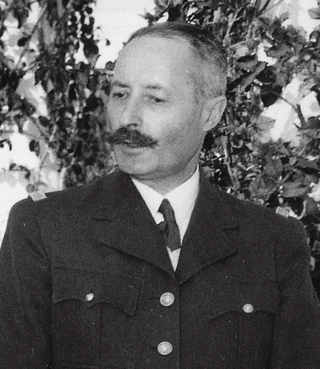
Henri Honoré Giraud was a French military officer who was a leader of the Free French Forces during the Second World War until he was forced to retire in 1944.
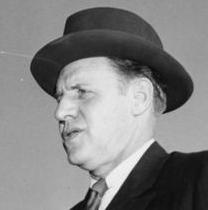
Robert Daniel Murphy was an American diplomat. He served as the first United States Under Secretary of State for Political Affairs when the position was established during the Eisenhower administration.

The 78th Infantry Division, also known as the Battleaxe Division, was an infantry division of the British Army, raised during the Second World War that fought, with great distinction, in Tunisia, Sicily and Italy from late 1942–1945.

José Aboulker was a French Algerian Jew and the leader of the anti-Nazi resistance in French Algeria in World War II. He received the U.S. Medal of Freedom, the Croix de Guerre, and was made a Companion of the Liberation and a Commander of the Légion d'honneur. After the war, he became a neurosurgeon and a political figure in France, who advocated for the political rights of Algerian Muslims.

The scuttling of the French fleet at Toulon was orchestrated by Vichy France on 27 November 1942 to prevent Nazi German forces from seizing it. After the Allied invasion of North Africa, the Germans invaded the territory administered by Vichy under the Armistice of 1940. The Vichy Secretary of the Navy, Admiral François Darlan, defected to the Allies, who were gaining increasing support from servicemen and civilians. His replacement, Admiral Gabriel Auphan, guessed correctly that the Germans intended to seize the large fleet at Toulon, and ordered it scuttled.
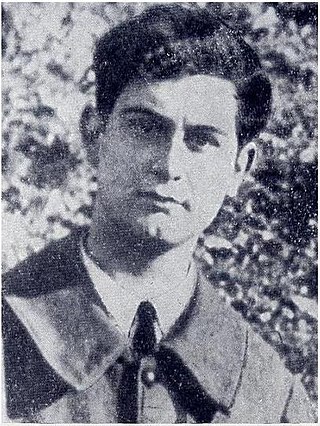
Fernand Bonnier de La Chapelle was a royalist member of the French Resistance during World War II. He assassinated Admiral of the Fleet François Darlan, the former chief of government of Vichy France and the high commissioner of French North Africa and West Africa, on 24 December 1942.
The following events occurred in November 1942:
Bernard Karsenty, was a member of the French Resistance during World War II. He was a leader of the Algiers putsch of 1942.
The French State, popularly known as Vichy France, as led by Marshal Philippe Pétain after the Fall of France in 1940 before Nazi Germany, was quickly recognized by the Allies, as well as by the Soviet Union, until 30 June 1941 and Operation Barbarossa. However, France broke with the United Kingdom after the destruction of the French Fleet at Mers-el-Kebir. Canada maintained diplomatic relations until the occupation of Southern France by Germany and Italy in November 1942.
Events from the year 1942 in France.
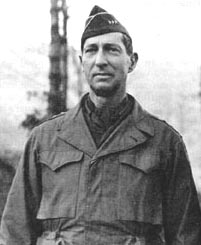
Operation Flagpole was part of the run-up to Operation Torch, the planned Allied invasion of North Africa during World War II. It involved arranging for and carrying out a top-secret high-level meeting between U.S. General Mark W. Clark, representing the Allies, and Général Charles E. Mast, the leader of a group of pro-Allied Vichy France officers in French North Africa, to secure their cooperation with the invasion.
Operation Kingpin was part of the run-up to Operation Torch, the planned Allied invasion of North Africa during World War II. It was a successor to Operation Flagpole, in which a secret meeting between U.S. General Mark W. Clark and diplomat Robert Murphy, representing the Allies, and General Charles E. Mast, the leader of a group of pro-Allied Vichy France officers in French North Africa, was arranged to secure their cooperation with the invasion. In Operation Kingpin, French General Henri Giraud, code-named "Kingpin", was released from confinement and brought to Gibraltar to meet with Operation Torch commander General Dwight D. Eisenhower and Clark in order to secure his cooperation with the invasion.

The Géo Gras Group was a French resistance movement that played a decisive role during Operation Torch, the British-American invasion of French North Africa during World War II.
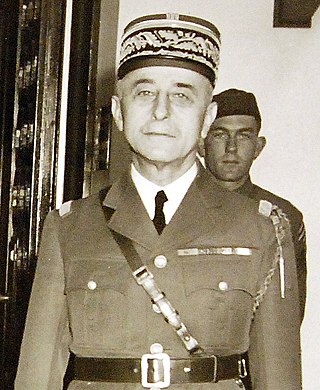
Charles Noguès was a French general. He graduated from the École Polytechnique, and he was awarded the Grand Croix of the Legion of Honour in 1939.

During World War II, Morocco, which was then occupied by France, was controlled by Vichy France from 1940 to 1942 after the occupation of France by Nazi Germany. However, after the North African campaign, Morocco was under Allied control and thus was active in Allied operations until the end of the war.
The French Civil and Military High Command was an administrative and military governing body in Algiers that was created in connection with the Allied landings in French North Africa on 7 and 8 November 1942 as part of Operation Torch. It came about as a result of negotiations between the Americans and two military figures from Vichy France whom the Americans believed could assure safe passage for the landing forces, namely Henri Giraud and François Darlan.

US Naval Bases in North Africa were sea ports and air base used in North Africa during World War II by the United States Navy. The ports and air bases supplied the troops of the Allies armies in the flight against German and Italian forces in the North African campaign and Western Desert campaign. Later the bases supported the invasion of Italy. The ports and airfields were used after their surrender in Operation Torch. Amphibious Training Bases (ATB) were built in Algeria and Tunisia to prepare for the upcoming invasions. Seabees, United States Naval Construction Battalions, did most of the repair work, new construction, and maintaining work at the bases.
References
- ↑ "KENNETH PENDAR, EX‐VICE CONSUL". The New York Times . 8 December 1972. Retrieved 23 July 2019.
- ↑ William J. vanden Heuvel (2002-04-04). "Franklin Delano Roosevelt: A Man of the Century". The Franklin & Eleanor Roosevelt Institute. Archived from the original on 2006-10-09.
{{cite journal}}: Cite journal requires|journal=(help) - ↑ David H. Lippman (2003-11-05). "World War II Notes: November 8, 1942 (Operation Torch)". WORLD WAR II PLUS 55. Archived from the original on September 10, 2006.
- ↑ Kenneth W. Pendar (May 2003). Adventure in Diplomacy: Our French Dilemma. Simon Publications. ISBN 1-932512-00-4.
- ↑ Kenneth W. Pendar (June 1976). Adventure in Diplomacy (World War II). Da Capo Press. ISBN 0-306-70774-8.
- ↑ Stenner, David (2019). Globalizing Morocco. Stanford: Stanford University Press. pp. 17–52. ISBN 978-1503608115.
{{cite book}}: CS1 maint: date and year (link) - ↑ Kenneth W. Pendar (May 2003). Adventure in Diplomacy: Our French Dilemma. Simon Publications. ISBN 1-932512-00-4. pp. 103-120